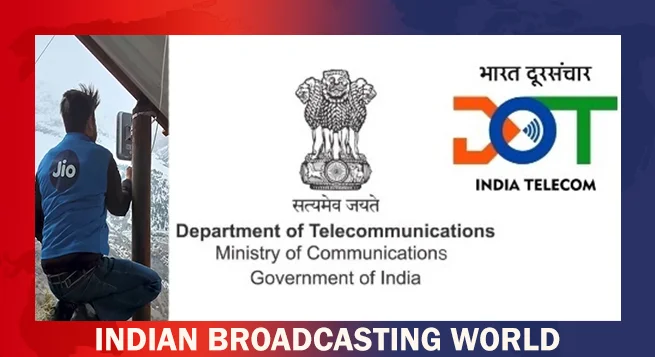Even as the Department of Telecommunications (DoT) recently approved provisional satellite spectrum allocation to eligible players for six months to provide broadband services also, Jio has sought government’s intervention on the way such spectrum is farmed out, hitting out at telecom regulator TRAI for overlooking certain ground realities.
Indian billionaire Mukesh Ambani’s Reliance has privately argued that the telecom regulator incorrectly concluded that home satellite broadband spectrum should be allocated and not auctioned, a letter seen by Reuters shows, intensifying a face-off with Elon Musk’s Starlink, a Reuters report from New Delhi stated yesterday.
The methodology of giving out spectrum for satellite services in India — a market set to grow 36 percent a year to reach $1.9 billion by 2030 according to Deloitte — has been a contentious issue since last year.
Musk’s Starlink and global peers like Amazon’s Project Kuiper back an administrative allocation, while Ambani — Asia’s wealthiest man who runs India’s Reliance Jio — is arguing for an auction process.
The current dispute is over an interpretation of Indian law that some in the industry say paved the way for the allocation of spectrum last year as Musk wanted, the Reuters report added.
But Reliance is arguing no provisions are in place for satellite broadband services for individual or home users, industry sources said on Sunday.
The telecom regulator, TRAI, is holding a public consultation, but Reliance in a private October 10 letter seen by Reuters asked for the process to be started afresh as the watchdog has “pre-emptively interpreted” that allocation is the way forward.
“TRAI seems to have concluded, without any basis, that spectrum assignment should be administrative,” Reliance’s senior regulatory affairs official Kapoor Singh Guliani wrote in the letter to India’s telecoms minister Jyotiraditya Scindia.
A senior TRAI official said on Sunday that due process is being followed and Reliance is welcome to share feedback during the consultation period.
The recommendations of the watchdog will form the basis for the government’s decision on the matter.
Reliance’s Jio is India’s No. 1 telecoms player with 480 million users.
DoT Nod for Satellite Spectrum Allocation: The Department of Telecommunications has approved provisional satellite spectrum allocation to eligible players for six months, allowing Bharti-backed Eutelsat OneWeb and Reliance Jio’s satellite arm, Orbit Connect India, to test their services, a report stated in moneycontrol.com, a news outlet that’s managed by Reliance.
As per an official notification issued on October 10, the moneycontrol.com report stressed, companies with a DoT licence and an In-Space authorisation certificate will be eligible for this provisional spectrum allocation. So far, OneWeb and the Jio-SES partnership have received the necessary approvals.
Elon Musk’s Starlink and Amazon’s project Kuiper are yet to obtain the Global Mobile Personal Communications by Satellite Services (GMPCS) licence and a separate approval from In-SPACe for NGSO constellation, thereby making them ineligible to receive spectrum.
“Period of validity of provisional spectrum assignment: up to 6 months or till compliances related to security and technical conditions are completed and demonstrated by the Licensee whichever is earlier,” as per the notification. The order will come into effect from October 21.
 MIB to unveil M&E sector statistical handbook today at WAVES
MIB to unveil M&E sector statistical handbook today at WAVES  WAVES 2025: Media dialogue backs creativity, heritage & ethics in AI Era
WAVES 2025: Media dialogue backs creativity, heritage & ethics in AI Era 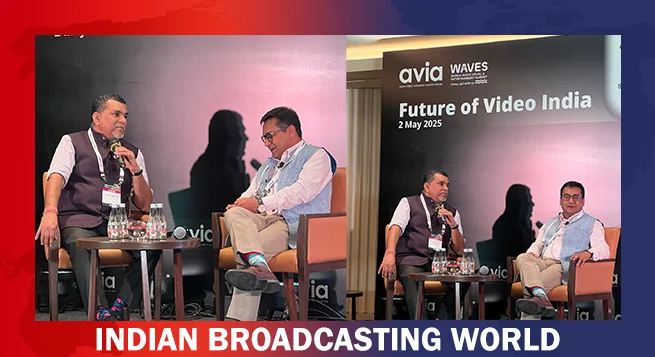 Pay TV leaders chart course for India’s linear TV in digital age
Pay TV leaders chart course for India’s linear TV in digital age 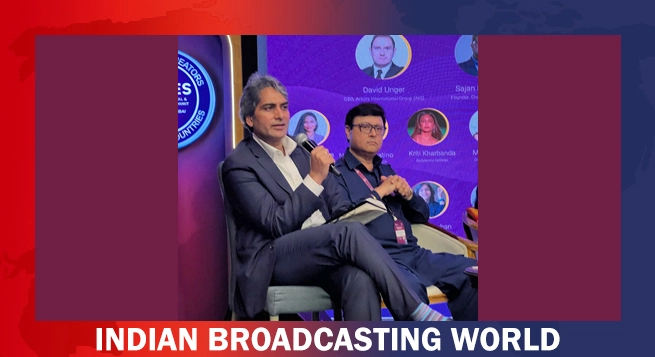 Sudhir Chaudhary announces new show for DD News, says “Good content still has a place” at WAVES 2025
Sudhir Chaudhary announces new show for DD News, says “Good content still has a place” at WAVES 2025 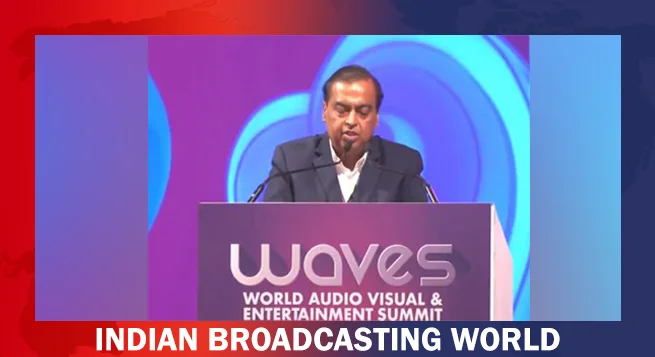 India can lead global entertainment revolution: Mukesh Ambani
India can lead global entertainment revolution: Mukesh Ambani 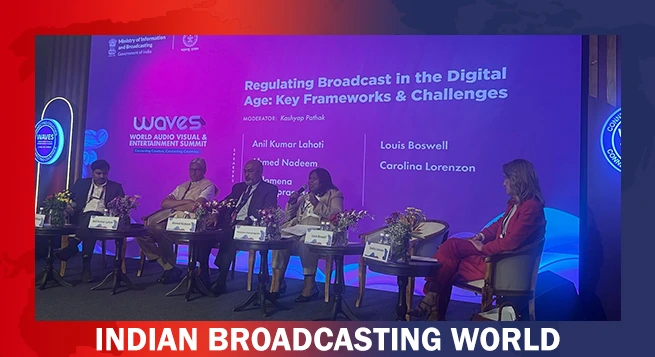 TRAI chief not in favour of separate rules for OTT, legacy b’casters
TRAI chief not in favour of separate rules for OTT, legacy b’casters  Emmy Award winner ‘Delhi Crime’ initially struggled to find backers
Emmy Award winner ‘Delhi Crime’ initially struggled to find backers  NBF issues advisory to member news channels on Pak guests
NBF issues advisory to member news channels on Pak guests 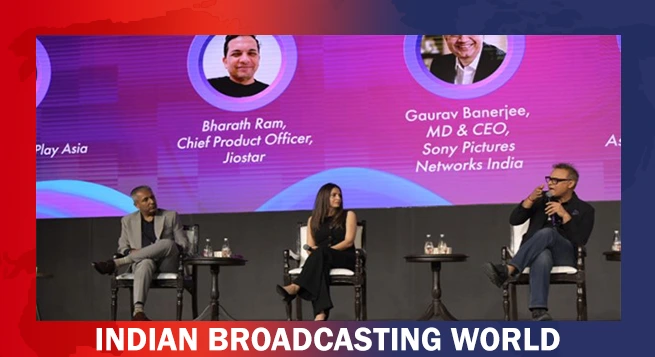 Of OTT revolution, interactivity, AI & unexplored India
Of OTT revolution, interactivity, AI & unexplored India 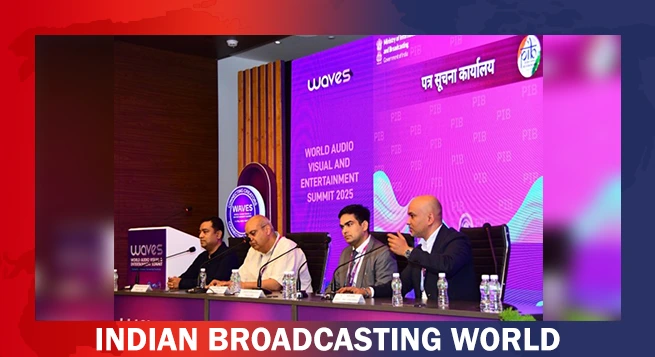 WAVEX ’25 highlights investment potential of M&E startups
WAVEX ’25 highlights investment potential of M&E startups  Ted Sarandos: Netflix investments in India equals $2+ bn in economic impact
Ted Sarandos: Netflix investments in India equals $2+ bn in economic impact 


